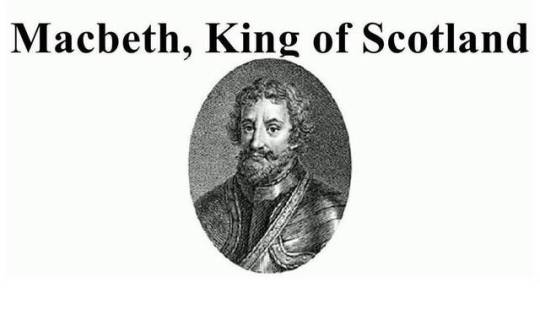#we caused the upheaval of a nation because we fought their evil king and he teleported into the abyss <3 we're gonna go kill him
Explore tagged Tumblr posts
Text


drawing my silly bird again
#dnd oc#lolan#dnd art#my art#doodles#aarakocra#featuring a kody!#kody#we caused the upheaval of a nation because we fought their evil king and he teleported into the abyss <3 we're gonna go kill him#and the chained oblivion too. tharzidun is the literal worst.#a fight basically 4 years in the making but WE'RE GETTING THERE!
42 notes
·
View notes
Photo

On August 15th 1057 King of Alba, MacBeth, was killed at Lumphanan.
17 years and one day after he killed Duncan II to seize the crown Mac Bethad mac Findláich himself fell foul of the violent times. So what of his time as Monarch.......
We start today's anniversaries with the subject of my last post, I posted about this yesterday but we can still get more out of the story of the real MacBeth, ask most non-Scots to name a Scots king and they will eventually remember this fellow Macbeth, who murdered a kindly old man for his crown, egged on by his shrew of a wife who then went crazy and killed herself. Or you can tell them the snippets you pick up from the likes of this and others true stories about the real man.
While Macbeth lived, his name as a warrior-prince must have carried some weight among the other rulers of the countries within reach of Alba, his Scotland. Because of its situation between Scandinavia, England, Ireland and the continent, Alba was a place of strategic importance. In Macbeth, it seemed to find a capable and imaginative king who held the throne in disturbed times for 17 years and was able, indeed, to leave his shores for a very long time without fear of upheavals behind him – something his English contemporary, Edward the Confessor was never able to do, so it shows his, and perhaps, Scotland's standing on the continent of Europe carried more weight than our southern neighbours.
In fact, Macbeth went to Rome – an event about which Shakespeare knew nothing. We know the date – 1050 – from the chronicle of an Irish monk writing in Germany; and we know that Macbeth was free with his gold when he got there, scattering his alms ‘like seed’ To me this was some feat for a man from what was still perceived as a savage like nation like Scotland, or Alba, as it was still known as in those days. He may have visited Rome as a pilgrim. His reasons were more likely to do with the benefits a Roman association might offer a country backward in development, which had hitherto relied on the care and protection of the Celtic pastoral Church.
Macbeth and his kingdom stood at the hub of a power struggle in which the Norse and the Danes, the Holy Roman Emperor and the Saxons of England, the Normans and Flemings and the Celts of Brittany, Cornwall, Wales and Ireland all played a part, with the pope in Rome courting them all.
What of the eponymous real villain of the Shakespearean play, Lady MacBeth, well by all accounts she appears to have been a loyal and blameless lady. From a previous marriage, she brought him a stepson, Lulach, who Macbeth seems to have cherished, and who was crowned king after Macbeth, before being killed in his turn. Nor was she ever called Lady Macbeth. Macbeth, meaning ‘Son of Life’ or ‘of the Elect’ is not a surname. The king’s wife would have been addressed as the lady Gruoch in Gaelic. The name is recorded in Fife where she and her husband are said to have gifted land to the Celtic monks of St Serf’s island, Loch Leven.
And of course we can't talk about "The Scottish Play" as it is known in theatrical circles, as saying the name of the play is said to be back luck for those thespians, The Witches, well Hollinshead, he of the chronicles I spoke of yesterday, wrote about three women ‘in strange and wild apparel’, who promised Macbeth the thanedoms of Cawdor and Glamis as well as the throne, and who informed Banquo that his heirs, and not Macbeth’s, would rule Scotland. So you can see where Shakespeare stole the idea from. Don't hold that against the Englishman though, all the best storytellers get inspiration from other places, our own Walter Scott, Robert Burns and James Hogg the "Ettrick Shepherd" all used material gathered from ancient tales. Also the present castles of Glamis and Cawdor have no connection at all with this part of Macbeth’s story – indeed, there were no stone castles in mid-11th century Scotland, only halls and fortifications of wood. Nor can the ‘blasted heath’ and the ‘witches stone’ beside Forres be anything but inventions provoked by the legend.
If there were no prophecies, and no evil Lady Macbeth, why did Macbeth killed Duncan and Banquo, if not to seize the throne and prevent Banquo from founding the royal line? For this part we have to blame another man the Scottish philosopher and historian, and the first Principal of King's College in Aberdeen, a man called Hector Boece.
Boece comes in with the character of Banquo, Macbeth did not kill Banquo because Banquo did not exist. By the 15th and 16th centuries, when Boece was plying his trade, Scotland was a very different place to the one we see MacBeth in. The Stewars were in control, and on the surface they did not want to be seen as warriors, like our hero today, others like Duncan, to paper over the cracks in the story of Scotland's turbulent violent past, Boece used by James IV to paint the Scots in a better light, in doing so he greatly maligned the real Macbeth. The work was well received at the time, both in Europe and in Scotland. I'm not entirely sure about how Banquo came about, but that apart, by the time of the Stewarts, no one wanted to remember that once, kingdoms had to be ruled by men who were war-leaders, and thrones fell to the strongest and most worthy, and not automatically to the first-born. They certainly didn't want to remember that Alba may have been ruled by a bastard King, it disguised the fact that the line founded by Duncan sprang from an unorthodox marriage, to an abbot called Crinan. A murky business in Boece's time, best left alone!.
Finally we get to the end of the Shakespeare play and Birnham wood, where Macbeth was finally slain by the Scots lord Macduff, whose family Macbeth had caused to be murdered.
Again, in history, there was no MacDuff. The final fight in the play is based on The Battle of Dunsinane, Macbeth's army was defeated by Malcolm Canmore (Máel Coluim mac Donnchada) with the help of the aforementioned English King Edward the Confessor, It was said that MacBeth’s guard surrounded him and defended him as best they could but they were defeated 3000 – 1,500, but MacBeth eventually got away to safety and spent the next 3 years on the run. After Dunsinane Malcolm attended a meeting of the mormaers who elected MacBeth’s step son Lulach as king – perhaps thinking that MacBeth was dead – or that it was time to move on – who knows? Malcolm, of course, was not happy about this, seeing as he had fought really hard to win. He still had a support from the English soldiers, so he chased Lulach, if the king was not to be him, then he would kill whoever it was. And Lulach was caught and killed by Malcolm, another victim in the long line of murdered Scots kings. As far as killing their kings went, the Scots seemed to be pretty good at it, perhaps better than the English.
And so we reach the point of this post and three years after Dunsinane, MacBeth was finally cornered and killed at Lumphanan, his 17 year reign coming to an end. If there has to be a moral to this story it is ‘you will get yours eventually," it certainly mirrored Shakespeare in that way, if not others.
So Macbeth's Scotland may have very well been a place without towns or proper markets or roads, but his administration was clearly good for its time, however it needed later Norman-trained rulers and the help of the Church to develop what he had started and become a more peaceful nation, but remember, he wasn't the scheming power hungry monarch, egged on by an ambitious wife, but a good King who oversaw a a relatively peaceful time in our formation as a country.
24 notes
·
View notes